We have all heard it when the alleged perpetrator of a crime says “I want to make a phone call”. It seems the right thing to say when you have been accused of a crime and you need help from your parents, guardian or a lawyer. We have all got used to hearing these same words used in countless TV shows that we take it for granted.
Finn Church Aid and its partners the Rural Human Rights Activist Program (RHRAP) and the Association of Female Lawyers of Liberia (AFELL) are embarking on a two year human rights project. The project is funded by the European Union, and it aims to monitor human rights violations in Liberian prisons and engage in proactive dialogue with authorities. As part of a comprehensive referral system, prisoners are given access to a telephone so that they can talk to their families, and those with issues of wrongful imprisonment can have access to lawyers.
That’s right access to a phone, a simple basic right!
Finn Church Aid and its partners will train Liberian police, prison guards, judges, lawyers and wardens and key people from communities on international human rights and prisoners’ rights standards. Beside the possibility to access phone privileges in the three target national prisons, prisoners will also enjoy pro bono legal assistance from selected lawyers to review their cases of incarceration.
Liberia in the past has gone through a brutal civil war and the latest Ebola epidemic has created a disorder of documentation of who is in prison and why. This practical and systematic project will give the Liberian authorities an overview if due process of incarceration has been followed.
The steps of incarceration should follow six basic steps. Complaint – arrest – court appearance – incarceration pre-trial – trial – release or detention.
According to RHRAP and AFELL, detainees have not been charged, have never seen a court, and have been put straight to jail by someone with power. Others have been on pre-trial detention for years without hope of seeing a court in the near future. This project will address the issue through a comprehensive approach, engaging the right people and institutions in finding long-lasting solutions.
The second part of the project is to strengthen the organisational capacities of partners to maximise their chances for international funding in the future and carry out quality work according to international standards.
Hoslo Jiwa
Country Director Liberia, Finn Church Aid
The project “Providing Access to Justice and Gender Sensitive Legal Awareness at Grassroots Level” contributes to enhance the rule of law and the respect of the fundamental human rights of the most vulnerable prisoners in Liberia, most often women and youth.
The project is implemented in Lofa, Bong and Nimba counties in Liberia in 2017–2018. It’s funded by the European Union – The European Instrument for Democracy and Human Rights (EIDHR).
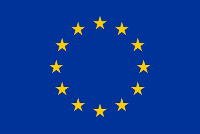
Delegation of the European Union to Liberia
EIDHR: The European Instrument for Democracy and Human Rights
Project Fact Page
The war in Syria will soon be entering it seventh year. In order for the international community to best support the resilience of the Syrian people in the midst of the conflict, it is crucial that attention is paid to social cohesion and supporting the Syrian’s own plans and actors. This was the main message of seven civil society organisations at the 23 January conference titled ‘How to build bottom-up community resilience in Syria?’ The event took place in connection with an international conference on Syria hosted by Finland on 24 January, where the United Nations will announce its plans for Syria concerning humanitarian aid and refugees.
“Strengthening the social cohesion of the Syrian people should be part of all aid in Syria. There is a need for common spaces where all Syrians can work together regardless of what groups they belong to. There is a need for cooperation between Syrian cities. At urban level there must be work with both local communities and internally displaced persons,” said Eva Zidan from Syria, coordinator at the civil society organisation COSV (Coordinamento delle Organizzazzione per il Servizio Volontario of Italy) in Syria.
The conference also pointed out that the international community and donor countries have furthered the rupture of Syria’s social cohesion by supporting only particular local actors. Another problem is that Syrians have not been included enough in planning and implementing humanitarian assistance. The international community has talked about Syrians but not with Syrians themselves. Decisions have been made on a top-down basis, without taking account of local level perspectives. And yet Syrians know best about local problems and how to solve them.
Syria Crisis Policy and Campaigns Advisor Alexandra Saieh from Oxfam said, “Women are taking on additional responsibilities but they’re still the least consulted. Women’s perspectives must be integrated for bottom up community resilience. In addition, donors and international organizations should scale up long term, flexible funding directly to local civil society from Syria, so that they can plan for and own the future.”
Zedoun Alzoubi, the CEO of UOSSM (Union of Medical Care and Relief Organisations), which carries out humanitarian work in Syria stressed the need for cooperation between civil society and local governance institutions: “Local cooperation between civil society locally and local administrative structures can weaken the influence of militias and combat radicalisation.”
The conference also discussed the importance of education and livelihood in ensuring that Syrian resilience and reconstruction succeeds.
The conference was organised by the Crisis Management Initiative, Felm, Fida International, Finn Church Aid, Kehys – The Finnish NGDO Platform to the EU, Kepa and Save the Children Finland.
Last week, Finnish CSOs issued a statement in which they called on the UN to involve Syrian local communities, civil society and local government in all operations conducted in Syria. In recent days, more signatories have endorsed the statement, and it has now been signed by 28 civil society organisations.
Statement by Finnish CSOs and list of signatories
Further information:
• Crisis Management Initiative (CMI): Maruan El-Krekshi, Programme Director for Middle East and North Africa, maruan.elkrekshi@cmi.fi, +358 40 747 4530.
• Felm: Minna Saarnivaara, Syria Initiative Project Manager, minna.saarnivaara@felm.org, +358 50 517 8396.
• Fida International: Ismo Salerto, Humanitarian Aid Manager, ismo.salerto@fida.info, +358 40 829 2206.
• Finn Church Aid: Tomi Järvinen, Director of International Cooperation, tomi.jarvinen@kirkonulkomaanapu.fi +358 40 641 8209.
• Kehys – The Finnish NGDO Platform to the EU: Rilli Lappalainen, Secretary General, rilli.lappalainen@kehys.fi, +358 50 561 3456.
• Kepa: Outi Hakkarainen, Policy Adviser, outi.hakkarainen@kepa.fi, +358 50 317 6728.
• Save the Children Finland: Sanna Vesikansa, Advocacy and Policy Adviser, sanna.vesikansa@pelastakaalapset.fi +358 50 433 1382.
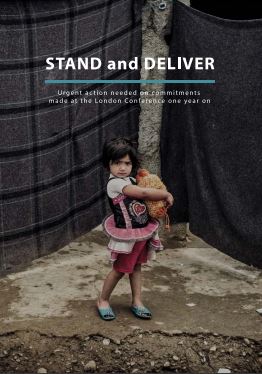 At the London conference one year ago donors and Syria’s neighbouring countries, who host most of the refugees from the war, agreed on a “comprehensive new approach” to tackle the humanitarian crisis. It consisted of financial pledges and policy changes aimed at improving the lives of refugees and host communities.
At the London conference one year ago donors and Syria’s neighbouring countries, who host most of the refugees from the war, agreed on a “comprehensive new approach” to tackle the humanitarian crisis. It consisted of financial pledges and policy changes aimed at improving the lives of refugees and host communities.
The Stand and Deliver report concludes that the conference failed to deliver on key commitments regarding civilians within Syria and the refugees in neighbouring countries. The review was made by 3 NGO platforms and 28 organisations, including Finn Church Aid.
Download the report from this link (pdf).
Statement on Supporting Community Resilience in Syria coinciding with the launch of the United Nations Regional Refugee and Resilience Plan 2017-2018 in response to the Syrian Crisis in Helsinki on January 24, 2017.
We, the civil society organisations working with Syrian communities, welcome the launch of the Regional Refugee and Resilience Plan 2017-2018 in response to the Syrian Crisis (3RP) and the sharing of the key humanitarian priorities for Syria in 2017 in Helsinki on 24 January 2017. We endorse the focus of 3RP on integrating a development approach with humanitarian assistance activities and echo the key features of the plan, such as the emphasis on educational opportunities and the need for boosting the use of national and local capacities for service delivery.
However, we express our concern at the untapped opportunities to integrate local stakeholders with humanitarian processes. We encourage the international community to involve Syrian communities and civil society more closely into the planning, implementation and evaluation of all processes in order to support stabilization and resilience. Their active involvement is needed to move the international response to the Syria tragedy from a humanitarian response to one of developing the inclusive economic and political conditions for building a sustainable peace and usher the dignified return of Syrian people to their homes. In the meantime, it is also important to work with host countries to formulate comprehensive strategies to accommodate Syrian refugees and to support host communities.
A year ago, the international community agreed on a comprehensive new approach to address the crisis in Syria and in the region. Now, in reviewing the financial commitments and policy changes made by donors and the international community in London, it is essential to assess whether the situation of people on the ground in Syria has improved. In working to alleviate suffering in Syria, the international community has so far operated according to planning and strategizing mechanisms done internally within its humanitarian coordination and programming capacity. Most efforts by the international community have focused on dealing with the humanitarian disaster in the region emanating from the Syrian conflict. This is essential for effective action during the conflict stage, but as the Syrian war is almost entering its seventh year, it is time to amplify this approach by better connecting with and coordinating among all actors working on Syria.
Also, in order to address the regional refugee situation effectively it is crucial to work on the situation inside Syria, and to create stability and resilience in the local communities so that people would not need to leave their homes and communities. In addition to dealing with the impact of the conflict, it is important that all activities contribute to the support of confidence building and conflict resolution. It is of particular importance that Syrian grass root actors across the political division lines are involved in strategizing, planning and implementing all processes. Working together with the local actors is essential as they are the ones who create resilience on the ground and shared incentives for peace. Consultation with Syrian stakeholders should go beyond defining humanitarian needs and cover all aspects from participation in planning to the implementation of priority investments.
Education is one of the key sectors where the future and capacity of the Syrians is being built. The inclusion of both education and economic opportunities in the Syria response is both welcome and necessary. However, given the exceptionally high youth unemployment rates in the region and a lack of future prospects for youth as a fuel for instability noted in the recent Arab Human Development Report by UNDP, more attention must be paid to linking these two aspects of the response to each other. In order for that to happen, the response should:
1) Provide for uninterrupted educational paths (incl. secondary, vocational and higher education). Thus far the educational solutions have strongly focused on primary education, which alone is not enough to provide for economic and opportunities, not to speak of prerequisites for reconstruction;
2) Support teacher training which reflects and responds to the rapidly changing needs;
3) Enhance dialogue with the private sector and 3RP actors to ensure the relevance of the education for labor market needs and
4) Increase entrepreneurial training as well as funding possibilities for young start-up entrepreneurs and deconstructing bureaucratic barriers hindering their aspirations.
For the sake of social cohesion and addressing the problem of youth unemployment, the chosen measures should target both Syrian refugee youth and local host community youth who are at risk of being marginalised. Such measures need to be complemented by psycho-social support for children and youth in vulnerable life situations.
Humanitarian and development aid to Syrians should be conducted in both host aid countries as well as in Syria to encourage stabilization and the dignified return of refugees. Programming should focus on supporting local livelihoods and community resilience to build local ownerships for solutions. Especially when working in Syrian cities, development aid needs to be coordinated and harmonized with potential or ongoing political processes. All aid processes should strive for the same goal: sustainable and inclusive peace in Syria.
As the Charter for Change stated, at least 20% of humanitarian funding should be directed to local actors. Furthermore, it is crucial that the international partners include all Syrian parties and geographic localities and, through this, help dissolving the already polarized political division lines. We see this as the minimum requirement. We urge the United Nations and its partners to increasingly support Syrian communities, local governance structures and Syrian civilian actors across the political divide to take ownership of all processes from meeting humanitarian needs to supporting potential peace negotiations and reconstruction.
Statement signed by Felm, Fida International, Finn Church Aid, Kehys ry, CMI, Kepa, Save the Children
22 people were trained in peace mediation and facilitation in November in the Central African Republic (CAR). The attendants came from all districts of Bangui, particularly from Pk5, the Muslim neighbourhood run by auto defence groups, where fresh fighting broke out less than a month ago.
The training was organised in Bangui by Finn Church Aid mixed religious leaders, community leaders, women, men and youth leaders – both Muslims and Christians.
“This quite unusual mix of attendants did not constitute problems. On the contrary, it was an opportunity to peacefully address issues that their communities face. The atmosphere during the training was peaceful, although animated”, says Marine Gourves, peace officer for FCA.
Because the Muslim inhabitants of PK5 do not feel safe in moving around the city in fear of becoming targets for aggression, Finn Church Aid dispatched a mini bus for transporting the participants to a safe area where the training took place.
The authorities and civil society leaders discussed problems within the communities such as issues with the auto defence groups, between vendors at the market, domestic issues between men and women as well as conflict over property.
The first objective of the training was to provide attendants with the knowledge and practice to proceed to basic mediation and facilitate dialog at the community level. Another objective was to strengthen their ability to analyse a conflict and to increase an understanding that behind the public positions taken by each party lie common interests and needs.
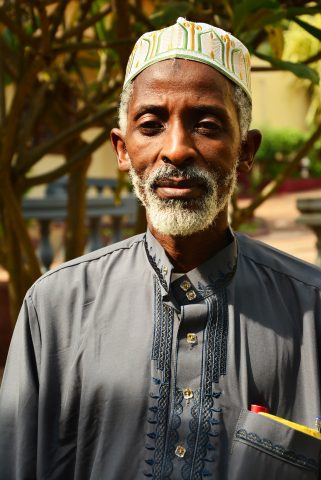
Ali Ousmane
Ali Ousmane, Coordinator for the Muslim associations in CAR, confirms that the need for such training is tremendous. He insisted on coming even though he had caught a cold.
“I learnt to be impartial and neutral in the mediation process, and not to influence the outcome. We are facing a far reaching crisis in CAR, a crisis of mentality where the use of violence became a rule. Mediation and facilitation can change mentalities. I think we should have a national mediation institution to help us with that”, Ousmane said.
Finn Church Aid is preparing 15 similar trainings in Bangui and in the prefectures of Ombella Mpoko, Sangha Mbaere and Mambere Kadei with additional participants from the 80 schools FCA is currently supporting.
Christian religious leaders of South Sudan met Pope Francis in Rome last week. The participants of the meeting underlined that the forgiveness and acceptance of the other is the path to building peace, and to human and social development in the war-torn country.
The situation in South Sudan is rapidly shifting from bad to worse and getting out of hands for both conflict parties. Peace remains elusive and the United Nations warns of increasing violence. In September, tens of thousands of people were internally displaced, and almost 3,000 people a day fled across the border to Uganda.
“South Sudan’s fragility has been exacerbated by the devastating return of widespread violence, callous, criminality and systematic disregard for human life, and a toxic breakdown of national identity and the country’s social fabric” says FCA’s country manager Pio Ding in Juba.
“In this context of despair, the visit was an opportunity for the Church leaders to leverage their influence as key moral stakeholders working and promoting the attainment of sustainable peace in South Sudan.”
The meeting with the Pope was attended by the four heads of the churches that FCA works closely with in peace efforts for South Sudan. The meeting was a chance to demonstrate the unity of purpose of the churches in South Sudan as well as to create a rare glimpse of hope in a fragile country.
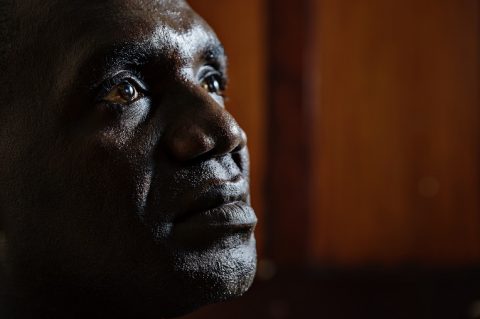
Father James Oyet Latasio was one of the delegation members to meet the Pope. Peace is the only alternative. We must build this country together, and church can act as a tool of unification. Forgiveness is the walls of our church and reconciliation is its roof”, Latansio has said.
“When the delegation returned to the airport in Juba on Monday, it was met with a large welcoming committee and an enthusiastic crowd who wanted to hear the Pope’s message. People are looking for signs of hope in the midst of a deteriorating situation and this visit was certainly a very positive and powerful one”, says Marie Makweri, FCA’s peace officer.
Hopefully, there will be a chance to continue the discussion. During the meeting, church leaders invited the Pope to visit South Sudan. Both Pio Ding and Marie Makweri very much welcome the initiative.
“It would show to the many South Sudanese, who are living in extremely difficult circumstances, and are suffering enormously from the ongoing conflict, that the rest of the world is still standing in solidarity with them, and supporting peace initiatives”, Makweri says.
“No matter how difficult the situation may look like, it is important to maintain the hope that peace can be attained.”
The delegation to Vatican included the main Christian religious leaders of South Sudan: Archbishop Paulino Lukudu Loro, the Metropolitan Archbishop of Juba (Roman Catholic Church), Archbishop Dr Daniel Deng Bul Yak, Archbishop and Primate of the Province of the Episcopal Church of South Sudan and Sudan (ECSS/S), Rev Moderator Peter Gai Lual Marrow, Chairman of the South Sudan Council of Churches and the Moderator of the General Assembly of the Presbyterian Church of South Sudan and Father James Oyet Latansio, General Secretary of the South Sudan Council of Churches.
Text: Satu Helin
Community members in Turkana South and West Pokot rejoiced at having lived in peace for 18 months without cattle raids and killings by together celebrating the International Day of Peace in late September.
For decades Pokot and Turkana communities have been embroiled in continual conflict related to natural resources and livestock rustling. The conflict has caused deaths and destruction of property, and rendered the northwestern region marginalized, poor and forgotten.
Hundreds of lives have been lost in the conflict over land, finally prompting elders from both communities to meet and negotiate. The recent one and a half year old peace is one of the achievements of Finn Church Aid’s conflict resolution process in Turkana South and West Pokot under USAID and funded by REGAL-IR project.
“The prevailing peace for these two communities now enables them to trade freely and children can now go to school”, FCA peace officer John Bongei tells.
“Pokot people are able to cross the bridge to the nearest Kainuk shopping Centre to sell milk while the Turkana people are able to also cross the bridge and buy other food items or graze their livestock. “
The peace process began with conflict assessments in 2014 and utilized Inter and Intra dialogue peace meetings between Elders, Women groups, Reformed warriors, politicians and Youth to peacefully resolve the conflict.
During the peace process, FCA has identified representatives to speak on behalf of the tribes and identified major grievances to be addressed within the tribes themselves. After that the two tribes were brought together for dialogue to address the long and outstanding conflicts.
After the talks the political leaders of the area went ahead to organise popularisation meetings of the resolutions to both communities. This resulted in a peaceful coexistence of the Turkana and Pokot communities.
However, the work is not yet done.
“My fear is that the former fighters, who are now friends, remain idle and might relapse back to violent conflict if they aren’t provided with alternative livelihood opportunities soon”, John Bongei says.
Finn Church Aid (FCA) is implementing the peace component of a larger programme “Resilience and Economic Growth in the Arid Lands – Improving Resilience” (REGAL-IR) by the consortium led by Adeso, African Development Solutions and funded by USAID.
The role of young people in peace processes was discussed at an event organised by FCA, the UN Permanent Missions of Eritrea and Finland and UNDP.
Two hundred UN diplomats, youth peacebuilders and civil society representatives were brought together in a unique way at the event Youth Leadership in Peace and Security in New York earlier this week.
The participants reflected on challenges in the cooperation between young people and governments, and presented ideas on how to overcome them.
“Now young people themselves got to express what they’re already doing for sustainable development and lasting peace”, said Joel Linnainmäki, representative of the National Youth Council of Finland, right after the event.
Almost half of the world’s population consists of under 25-year-olds. They make almost 60 per cent of the population in Africa and the Middle East. The participants of the event agreed that young people shouldn’t be treated as a threat or as trouble-makers, but instead recognised for the positive role they can play in peace processes, and for instance in preventing violent radicalisation.
There’s more young people in the world than ever before in history, and it’s increasingly clear that sustainable development and a lasting peace can’t be achieved without including the youth.
“Young people deserve and need a seat at the table in peacebuilding”, Deputy Secretary-General Jan Eliasson stated in his opening speech at the event.
Youth participation models should be exported from Finland
Ensuring the political participation of youth also requires economic inclusion and opportunities. Employment and quality education for young people as well as vocational skills must be taken into account.
Young people were recognized as active agents of change less than a year ago in the UN resolution 2250 Youth, Peace and Security in December 2015.
“In that regard, the composition of this event was extremely important. Young people themselves talked about the work they’ve done”, said this year’s UN Youth Delegate from Finland Sonja Huttunen.
According to Linnainmäki the event was a welcome step forward in the cooperation with Eritrean youth.
“At this point, the most important task is to broaden our cooperation and bring along other youth organisations in Europe and the Horn of Africa. We’re now planning a wider conference in Eritrea about youth leadership in peacebuilding”, he says.
The main objectives of Finland’s development policies aim to increase stability in developing countries, find employment and education opportunities for youth, and prevent radicalisation.
”Finland has a lot of experience in including youth in decision making, and should be proud of it. We have for instance ensured the participation of youth councils by law, and this could be applicable in other countries as well to bring youth voices to decision making tables”, said FCA’s adviser Laura Vanhanen, one of the organisers of the event.
You can also watch the event at the UN WEB TV.
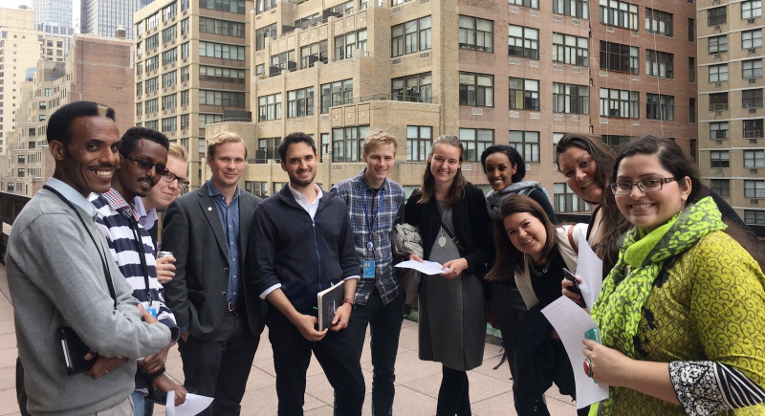
The dialogue between Finnish and Eritrean youth continued in the Youth Leadership in Peace and Security event in New York. Photo: Laura Vanhanen /Finn Church Aid.
Youth delegates representing the Finnish youth:
Silja Markkula, Guides and Scouts of Finland & Allianssi – National Youth Council of Finland
Sonja Huttunen, The UN Youth Delegate of Finland 2016
Joel Linnainmäki, Allianssi – National Youth Council of Finland
Otto Ahoniemi, The Finnish Conscripts Union
Members of the extremist organisation Boko Haram are most often recruited by people they already know, such as friends and family – not by people in mosques or madrasas. Women have larger responsibilities in Boko Haram than previously thought. A fresh study points out that recruiters are adaptive to the tightening security environment.
“If any Boko Haram member tells you he is feeling fine he is a bloody liar. To do so we go about roaming in the bush, we have no good food, we do not bath.”
The quote is from an interview with a former Boko Haram fighter, featured in a new study that aims to get behind the profiles of Boko Haram members and understand the reasons for joining the radical group.
The scale of the research is exceptional. 119 former Boko Haram members were interviewed in December 2015 in Yola and Maiduguri in Nigeria. The sample of ex-fighters is larger than in any previous research on the group. The results of the study were published in the UN headquarters on Monday.
The study was conducted by Finn Church Aid (FCA), The International Dialogue Centre (KAICIID), The Network of Religious and Traditional Peacemakers and the Citizen Research Centre. It is preceded by similar research carried out by the same authors conducted with Al Shabab fighters in 2014.
In order to put the responses of former fighters into a deeper context, researchers interviewed 60 representatives from Nigerian civil society organisations. The organisations work with for instance community outreach and dialogue, humanitarian assistance, women and youth outreach. The study compares the responses of both groups.
“We always aim for primary source research. Without real first-hand information it is impossible to understand the complexity of the situation, or plan prevention or reintegration initiatives”, says Antti Pentikäinen, Executive Director of The Network for Religious and Traditional Peacemakers.
“This research reinforces the key role of religious leaders in defusing religious tensions and preventing radicalisation. As influencers and role models they can prevent manipulation and misinterpretation of religion by violent extremists. We believe it is crucial that religious leaders are equipped with skills in interreligious dialogue and understanding”, stresses Fahad Abualnasr, KAICIID Director General.
Boko Haram recruits through friends and family
Boko Haram members are most often recruited by people they already know. During the interviews, former Boko Haram fighters explained that people close to them – friends, family and relatives and neighbours – introduced majority of them to the organisation. Contrary to common perceptions, only 27% of former fighters were introduced to the group at mosques or madrasas.
According to study the mosques provide a gathering place, but they are not in themselves a recruiting space. There was very little evidence of individual “firebrand” Imams preaching on the side of Boko Haram to facilitate recruitment, the study finds.
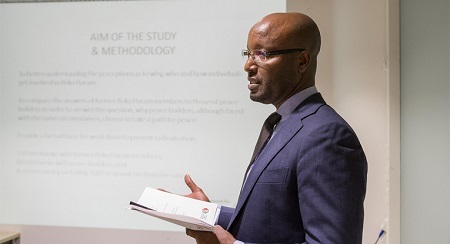
Mahdi Abdile
“In the pre-9/11 world, mosques and madrasas used to be the place to get new recruits. Today that has changed”, says Mahdi Abdile, Director of Research at FCA and at the Network for Religious and Traditional Peacemakers, and the co-author of the study.
“The results of this study highlight the fact that recruiters are adaptive to the tightening security environment, and more than ever before, that women and young girls are increasingly being targeted for recruitment.”
Women more active in recruiting and intelligence gathering
Boko Haram is internationally known especially for its strategy of kidnapping young girls. According to the study, female Boko Haram members were far more likely to be introduced to the group by force than males. Furthermore, male Boko Haram members were more likely to report joining as a personal decision (11%) than females (2%).
This study, however, refutes the common perception that women predominately serve as wives, or that only women provide domestic support services like cooking and cleaning. In Boko Haram both men and women provide these services. Within the research sample women even surpassed their male counterparts as recruiters (12 and seven) and as intelligence operatives (eight and six).
“This large role of women in Boko Haram was one of the most surprising results we got. For example, in Al Shabab women basically do not have an active role at all”, Mahdi Abdile says.
Why do people join Boko Haram?
The study identifies some key factors behind the reasons for joining Boko Haram. The main ones are: revenge, religion, and personal needs.
57% of former Boko Haram fighters identified the desire for revenge as having a strong influence on their decision to join, or being the only reason for it. The target of the revenge was the military, which according to Boko Haram fighters is brutal, merciless, and pitiless.
Therefore, the study points out that military initiatives and actions should be considered carefully, and must not be counterproductive. Very clear rules of engagement are needed, especially in cases involving non-combatants, in order to prevent future radicalisation.
43% of former fighters indicated that religion had a strong influence on their decision to join Boko Haram. However, according to the interviewees, Boko Haram was not following the true teachings of Islam. Those who joined for religious reasons were vulnerable and not familiar enough with the teachings of the Qur’an to know better.
“First of all, we were carried away by the name of Islam, we were told to go and do Jihad (holy war). After that we came to discover that it was a deceitful way of introducing us into another part of the world.”
23,5% of Boko Haram respondents told they had joined Boko Haram to be respected and feared, while a further 17% stated a need to belong.
Fear played an important role in all the phases of Boko Haram’s activity: recruitment, joining and being a member. Former fighters described a feeling of fear in Boko Haram when being a member and after leaving the group. This fear should be countered by reintegrating former Boko Haram fighters into society, and by involving local communities in helping individuals to feel like a part of a strong community.
The co-author of this study was Dr. Anneli Botha, who works as an independent consultant. The study was supported by Ministry for Foreign Affairs of Finland.
To read a summary of the study, click here.

For more information contact: (until 2 Oct in Finland UTC+2; 3-7 Oct US east coast time)
Mahdi Abdile, Director of Research and Prevention of Violent Extremism, FCA and the Network for Religious and Traditional Peacemakers, the co-author of the study +358 50 44 232 92, mahdi.abdile@kua.fi
Mikko Koivumaa, Head of Communications, FCA, +358 40 559 4030, mikko.koivumaa@kua.fi
This study has been conducted by Dr. Anneli Botha and Mahdi Abdile, and was commissioned by the Network for Religious and Traditional Peacemakers, the International Dialogue Centre (KAICIID) and Finn Church Aid with the support of the Ministry for Foreign Affairs of Finland. The views set out herein are those of the author(s) and do not necessarily reflect the official position(s) of the partnering institutions.
It’s time to build a wall. Walls are in right now, a trending topic. A wall solves almost all problems. And if it doesn’t? Make it bigger. A great wall.
The narrative of the wall keeps people safe. It creates corresponding images to the wall in our heads. The others need to be kept out. Our space. Beware of the dog. Access restricted. All good.
But does the wall really change anything?
The great wall of Mexico. The British wall at the Eurotunnel. A Norwegian wall with Russia. Hungary’s fence. Feeling safer already? If that’s not enough, you can always build a higher wall to keep out the neighbours.
We are living in times of dramatic changes and insecurity. People are craving better times. More security. Or at least some sort of clarity on what change is happening to the world around us. The narrative of the wall does not offer solutions, but it offers lazy shortcuts. Keep out what you don’t understand.
At FCA, we are thinking a lot about change. From a global point of view, the changes are indeed substantial. The world is seeing more refugees than ever before in human history. In 2015, 244 million people lived outside their country of origin. That is 40 times the population of Finland.
The world is changing and people are on the move. The scope of the challenge makes it clear that this is not the time of simplified solutions.
We need to ‘complexify’ our worldview, and for that, we need some sort of anti-wall.
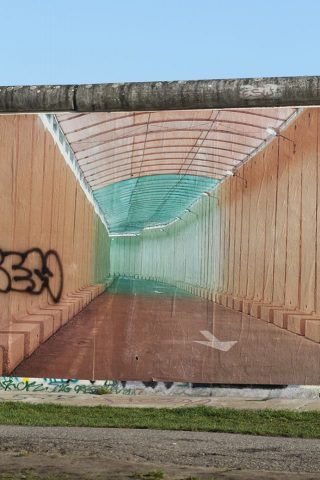 When visiting Ramallah last year, I could not help but be reminded of some of the big walls in history. Including the Berlin Wall, one of the most visible symbols of the Iron Curtain. When the wall fell, even the end of history was proposed. History didn’t end, but the ruins of the Berlin Wall remain a strong symbol for overcoming walls and opening up. Especially as it’s become a picture gallery of other walls around the world.
When visiting Ramallah last year, I could not help but be reminded of some of the big walls in history. Including the Berlin Wall, one of the most visible symbols of the Iron Curtain. When the wall fell, even the end of history was proposed. History didn’t end, but the ruins of the Berlin Wall remain a strong symbol for overcoming walls and opening up. Especially as it’s become a picture gallery of other walls around the world.
We need to overcome the walls in our head. We need to meet the other, to engage the world in all its complexity. A constant demand of increased security only becomes a vicious cycle.
For example those who have been rejected for asylum are suggested to be more prone to join criminal gangs. The claim has entered the public arena without proper or any evidence. In the public discussion we are pushing the one at the ‘borderline of our empathy’ to become an even bigger security risk. Another brick to the wall in our heads.
It’s time to get rid of the wall. Criminals and terrorists will always find their way through. But since when did we build a successful world based on the existence of criminal and extremist ideologies that not even a permille of the world adheres to? A small amount of people should not be able to take the world as hostage.
The first step of breaking down walls starts from our heads. In practice this means re-humanizing our fellow human beings. Meet them. Talk to them. Especially those, who are easily portrayed as a risk, a threat, or a problem. We need to recognize our fear and start living our lives again, a life that’s not dictated by fear.
In his last speech to the UN president Barack Obama said: “Today, a nation ringed by walls would only imprison itself”. The wall narrative demands us to imprison ourselves.
As voluntary prisoners we have a choice to be made.
The writer is Senior Advisor for Right to Peace at Finn Church Aid
Twitter: @sinnwahn
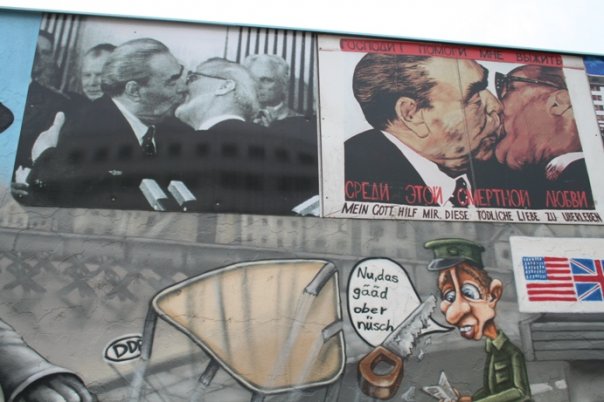







 When visiting Ramallah last year, I could not help but be reminded of some of the big walls in history. Including the Berlin Wall, one of the most visible symbols of the Iron Curtain. When the wall fell, even the end of history was proposed. History didn’t end, but the ruins of the Berlin Wall remain a strong symbol for overcoming walls and opening up. Especially as it’s become a picture gallery of other walls around the world.
When visiting Ramallah last year, I could not help but be reminded of some of the big walls in history. Including the Berlin Wall, one of the most visible symbols of the Iron Curtain. When the wall fell, even the end of history was proposed. History didn’t end, but the ruins of the Berlin Wall remain a strong symbol for overcoming walls and opening up. Especially as it’s become a picture gallery of other walls around the world.